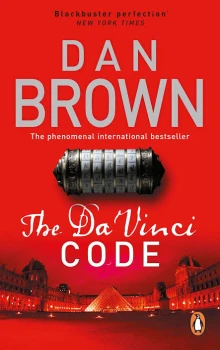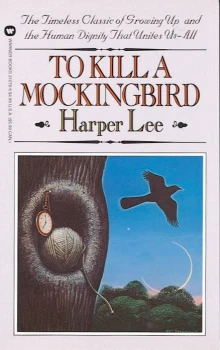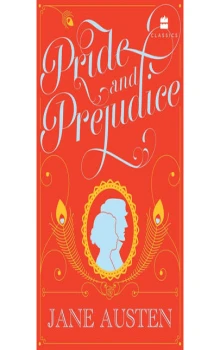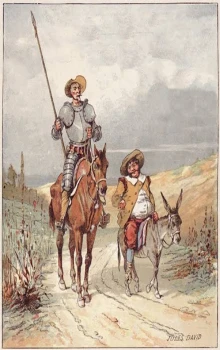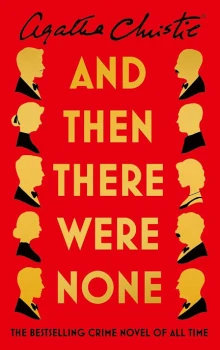OVER THE WAFFLES NEXT MORNING, Pittypat was lachrymose, Melanie was
silent and Scarlett defiant.
“I don’t care if they do talk. I’ll bet I made more money for the hospital
than any girl there—more than all the messy old stuff we sold, too.”
“Oh, dear, what does the money matter?” wailed Pittypat wringing her
hands. “I just couldn’t believe my eyes, and poor Charlie hardly dead a
year…. And that awful Captain Butler, making you so conspicuous, and
he’s a terrible, terrible person, Scarlett. Mrs. Whiting’s cousin, Mrs.
Coleman, whose husband came from Charleston, told me about him. He’s
the black sheep of a lovely family—oh, how could any of the Butlers ever
turn out anything like him? He isn’t received in Charleston and he has the
fastest reputation and there was something about a girl—something so bad
Mrs. Coleman didn’t even know what it was—”
“Oh, I can’t believe he’s that bad,” said Melly gently. “He seemed a
perfect gentleman and when you think how brave he’s been, running the
blockade—”
“He isn’t brave,” said Scarlett perversely, pouring half a pitcher of syrup
over her waffles. “He just does it for money. He told me so. He doesn’t care
anything about the Confederacy and he says we’re going to get licked. But
he dances divinely.”
Her audience was speechless with horror.
“I’m tired of sitting at home and I’m not going to do it any longer. If
they all talked about me last night, then my reputation is already gone and
it won’t matter what else they say.”
It did not occur to her that the idea was Rhett Butler’s. It came so patly
and fitted so well with what she was thinking.
“Oh! What will your mother say when she hears? What will she think of
me?”
A cold qualm of guilt assailed Scarlett at the thought of Ellen’s
consternation, should she ever learn of her daughter’s scandalous conduct.
But she took heart at the thought of the twenty-five miles between Atlanta
and Tara. Miss Pitty certainly wouldn’t tell Ellen. It would put her in such a
bad light as a chaperon. And if Pitty didn’t tattle, she was safe.
“I think—” said Pitty, “yes, I think I’d better write Henry a letter about
it—much as I hate it—but he’s our only male relative, and make him go
speak reprovingly to Captain Butler—Oh, dear, if Charlie were only alive
—You must never, never speak to that man again, Scarlett.”
Melanie had been sitting quietly, her hands in her lap, her waffles
cooling on her plate. She arose and, coming behind Scarlett, put her arms
about her neck.
“Darling,” she said, “don’t get upset. I understand and it was a brave
thing you did last night and it’s going to help the hospital a lot. And if
anybody dares say one little word about you, I’ll tend to them…. Aunt
Pitty, don’t cry. It has been hard on Scarlett, not going anywhere. She’s just
a baby.” Her fingers played in Scarlett’s black hair. “And maybe we’d all be
better off if we went out occasionally to parties. Maybe we’ve been very
selfish, staying here with our grief. War times aren’t like other times. When
I think of all the soldiers in town who are far from home and haven’t any
friends to call on at night—and the ones in the hospital who are well
enough to be out of bed and not well enough to go back in the army—
Why, we’ve been selfish. We ought to have three convalescents in our
house this minute, like everybody else, and some of the soldiers out to
dinner every Sunday. There, Scarlett, don’t you fret. People won’t talk
when they understand. We know you loved Charlie.”
Scarlett was far from fretting and Melanie’s soft hands in her hair were
irritating. She wanted to jerk her head away and say “Oh, fiddle-dee-dee!”
for the warming memory was still on her of how the Home Guard and the
militia and the soldiers from the hospital had fought for her dances last
night. Of all the people in the world, she didn’t want Melly for a defender.
She could defend herself, thank you, and if the old cats wanted to squall—
well, she could get along without the old cats. There were too many nice
officers in the world for her to bother about what old women said.
Pittypat was dabbing at her eyes under Melanie’s soothing words when
Prissy entered with a bulky letter.
“Fer you, Miss Melly. A lil nigger boy brung it.”
“For me?” said Melly, wondering, as she ripped open the envelope.
Scarlett was making headway with her waffles and so noticed nothing
until she heard a burst of tears from Melly and, looking up, saw Aunt
Pittypat’s hand go to her heart.
“Ashley’s dead!” screamed Pittypat, throwing her head back and letting
her arms go limp.
“Oh, my god!” cried Scarlett, her blood turning to ice water.
“No! No!” cried Melanie. “Quick! Her smelling salts, Scarlett! There,
there, honey, do you feel better? Breathe deep. No, it’s not Ashley. I’m so
sorry I scared you. I was crying because I’m so happy,” and suddenly she
opened her clenched palm and pressed some object that was in it to her
lips. “I’m so happy,” and burst into tears again.
Scarlett caught a fleeting glimpse and saw that it was a broad gold ring.
“Read it,” said Melly, pointing to the letter on the floor. “Oh, how
sweet, how kind, he is!”
Scarlett, bewildered, picked up the single sheet and saw written in a
black, bold hand: “The Confederacy may need the lifeblood of its men but
not yet does it demand the heart’s blood of its women. Accept, dear
Madam, this token of my reverence for your courage and do not think that
your sacrifice has been in vain, for this ring has been redeemed at ten times
its value. Captain Rhett Butler.”
Melanie slipped the ring on her finger and looked at it lovingly.
“I told you he was a gentleman, didn’t I?” she said, turning to Pittypat,
her smile bright through the teardrops on her face. “No one but a
gentleman of refinement and thoughtfulness would ever have thought how
it broke my heart to—I’ll send my gold chain instead. Aunt Pittypat, you
must write him a note and invite him to Sunday dinner so I can thank
him.”
In the excitement, neither of the others seemed to have thought that
Captain Butler had not returned Scarlett’s ring, too. But she thought of it,
annoyed. And she knew it had not been Captain Butler’s refinement that
had prompted so gallant a gesture. It was that he intended to be asked into
Pittypat’s house and knew unerringly how to get the invitation.
* * *
“I was greatly disturbed to hear of your recent conduct,” ran Ellen’s letter
and Scarlett, who was reading it at the table, scowled. Bad news certainly
traveled swiftly. She had often heard in Charleston and Savannah that
Atlanta people gossiped more and meddled in other people’s business more
than any other people in the South, and now she believed it. The bazaar
had taken place Monday night and today was only Thursday. Which of the
old cats had taken it upon herself to write Ellen? For a moment she
suspected Pittypat but immediately abandoned that thought. Poor Pittypat
had been quaking in her number-three shoes for fear of being blamed for
Scarlett’s forward conduct and would be the last to notify Ellen of her own
inadequate chaperonage. Probably it was Mrs. Merriwether.
“It is difficult for me to believe that you could so forget yourself and your
rearing. I will pass over the impropriety of your appearing publicly while in
mourning, realizing your warm desire to be of assistance to the hospital. But
to dance, and with such a man as Captain Butler! I have heard much of
him (as who has not?) and Pauline wrote me only last week that he is a
man of bad repute and not even received by his own family in Charleston,
except of course by his heartbroken mother. He is a thoroughly bad
character who would take advantage of your youth and innocence to make
you conspicuous and publicly disgrace you and your family. How could Miss
Pittypat have so neglected her duty to you?”
Scarlett looked across the table at her aunt. The old lady had recognized
Ellen’s handwriting and her fat little mouth was pursed in a frightened way,
like a baby who fears a scolding and hopes to ward it off by tears.
“I am heartbroken to think that you could so soon forget your rearing. I
have thought of calling you home immediately but will leave that to your
father’s discretion. He will be in Atlanta Friday to speak with Captain
Butler and to escort you home. I fear he will be severe with you despite my
pleadings. I hope and pray it was only youth and thoughtlessness that
prompted such forward conduct. No one can wish to serve our Cause more
than I, and I wish my daughters to feel the same way, but to disgrace—”
There was more in the same vein but Scarlett did not finish it. For once,
she was thoroughly frightened. She did not feel reckless and defiant now.
She felt as young and guilty as when she was ten and had thrown a buttered
biscuit at Suellen at the table. To think of her gentle mother reproving her
so harshly and her father coming to town to talk to Captain Butler. The
real seriousness of the matter grew on her. Gerald was going to be severe.
This was one time when she knew she couldn’t wiggle out of her
punishment by sitting on his knee and being sweet and pert.
“Not—not bad news?” quavered Pittypat.
“Pa is coming tomorrow and he’s going to land on me like a duck on a
June bug,” answered Scarlett dolorously.
“Prissy, find my salts,” fluttered Pittypat, pushing back her chair from her
half-eaten meal. “I—I feel faint.”
“Dey’s in yo’ skirt pocket,” said Prissy, who had been hovering behind
Scarlett, enjoying the sensational drama. Mist’ Gerald in a temper was
always exciting, providing his temper was not directed at her kinky head.
Pitty fumbled at her skirt and held the vial to her nose.
“You all must stand by me and not leave me alone with him for one
minute,” cried Scarlett. “He’s so fond of you both, and if you are with me
he can’t fuss at me.”
“I couldn’t,” said Pittypat weakly, rising to her feet. “I—I feel ill. I must
go lie down. I shall lie down all day tomorrow. You must give him my
excuses.”
“Coward!” thought Scarlett, glowering at her.
Melly rallied to the defense, though white and frightened at the
prospect of facing the fire-eating Mr. O’Hara. “I’ll—I’ll help you explain
how you did it for the hospital. Surely he’ll understand.”
“No, he won’t,” said Scarlett. “And oh, I shall die if I have to go back to
Tara in disgrace, like Mother threatens!”
“Oh, you can’t go home,” cried Pittypat, bursting into tears. “If you did I
should be forced—yes, forced to ask Henry to come live with us, and you
know I just couldn’t live with Henry. I’m so nervous with just Melly in the
house at night, with so many strange men in town. You’re so brave I don’t
mind being here without a man!”
“Oh, he couldn’t take you to Tara!” said Melly, looking as if she too
would cry in a moment. “This is your home now. What would we ever do
without you?”
“You’d be glad to do without me if you knew what I really think of you,”
thought Scarlett sourly, wishing there were some other person than
Melanie to help ward off Gerald’s wrath. It was sickening to be defended by
someone you disliked so much.
“Perhaps we should recall our invitation to Captain Butler—” began
Pittypat.
“Oh, we couldn’t! It would be the height of rudeness!” cried Melly,
distressed.
“Help me to bed. I’m going to be ill,” moaned Pittypat. “Oh, Scarlett,
how could you have brought this on me?”
Pittypat was ill and in her bed when Gerald arrived the next afternoon.
She sent many messages of regret to him from behind her closed door and
left the two frightened girls to preside over the supper table. Gerald was
ominously silent although he kissed Scarlett and pinched Melanie’s cheek
approvingly and called her “Cousin Melly.” Scarlett would have infinitely
preferred bellowing oaths and accusations. True to her promise, Melanie
clung to Scarlett’s skirts like a small rustling shadow and Gerald was too
much of a gentleman to upbraid his daughter in front of her. Scarlett had to
admit that Melanie carried off things very well, acting as if she knew
nothing was amiss, and she actually succeeded in engaging Gerald in
conversation, once the supper had been served.
“I want to know all about the County,” she said, beaming upon him.
“India and Honey are such poor correspondents, and I know you know
everything that goes on down there. Do tell us about Joe Fontaine’s
wedding.”
Gerald warmed to the flattery and said that the wedding had been a
quiet affair, “not like you girls had,” for Joe had only a few days’ furlough.
Sally, the little Munroe chit, looked very pretty. No, he couldn’t recall
what she wore but he did hear that she didn’t have “second-day” dress.
“She didn’t!” exclaimed the girls, scandalized.
“Sure, because she didn’t have a second day,” Gerald explained and
bawled with laughter before recalling that perhaps such remarks were not
fit for female ears. Scarlett’s spirits soared at his laugh and she blessed
Melanie’s tact.
“Back Joe went to Virginia the next day,” Gerald added hastily. “There
was no visiting about and dancing afterwards. The Tarleton twins are
home.”
“We heard that. Have they recovered?”
“They weren’t badly wounded. Stuart had it in the knee and a minie ball
went through Brent’s shoulder. You had it, too, that they were mentioned
in dispatches for bravery?”
“No! Tell us!”
“Hare brained—both of them. I’m believing there’s Irish in them,” said
Gerald complacently. “I forget what they did, but Brent is a lieutenant
now.”
Scarlett felt pleased at hearing of their exploits, pleased in a proprietary
manner. Once a man had been her beau, she never lost the conviction that
he belonged to her, and all his good deeds redounded to her credit.
“And I’ve news that’ll be holding the both of you,” said Gerald.
“They’re saying Stu is courting at Twelve Oaks again.”
“Honey or India?” questioned Melly excitedly, while Scarlett stared
almost indignantly.
“Oh, Miss India, to be sure. Didn’t she have him fast till this baggage of
mine winked at him?”
“Oh,” said Melly, somewhat embarrassed at Gerald’s outspokenness.
“And more than that, young Brent has taken to hanging about Tara.
Now!”
Scarlett could not speak. The defection of her beaux was almost
insulting. Especially when she recalled how wildly both the twins had acted
when she told them she was going to marry Charles. Stuart had even
threatened to shoot Charles, or Scarlett, or himself or all three. It had been
most exciting.
“Suellen?” questioned Melly, breaking into a pleased smile. “But I
thought Mr. Kennedy—”
“Oh, him?” said Gerald. “Frank Kennedy still pussyfoots about, afraid of
his shadow, and I’ll be asking him his intentions soon if he doesn’t speak
up. No, ’tis me baby.”
“Carreen?”
“She’s nothing but a child!” said Scarlett sharply, finding her tongue.
“She’s little more than a year younger than you were, Miss, when you
married,” retorted Gerald. “Is it you’re grudging your old beau to your
sister?”
Melly blushed, unaccustomed to such frankness, and signaled Peter to
bring in the sweet potato pie. Frantically she cast about in her mind for
some other topic of conversation which would not be so personal but
which would divert Mr. O’Hara from the purpose of his trip. She could
think of nothing but, once started, Gerald needed no stimulus other than
an audience. He talked on about the thievery of the commissary
department which every month increased its demands, the knavish
stupidity of Jefferson Davis and the blackguardery of the Irish who were
being enticed into the Yankee army by bounty money.
When the wine was on the table and the two girls rose to leave him,
Gerald cocked a severe eye at his daughter from under frowning brows and
commanded her presence alone for a few minutes. Scarlett cast a despairing
glance at Melly, who twisted her handkerchief helplessly and went out,
softly pulling the sliding doors together.
“How now, Missy!” bawled Gerald, pouring himself a glass of port. “’Tis
a fine way to act! Is it another husband you’re trying to catch and you so
fresh a widow?”
“Not so loud, Pa, the servants—”
“They know already, to be sure, and everybody knows of our disgrace.
And your poor mother taking to her bed with it and me not able to hold up
me head. ’Tis shameful. No, Puss, you need not think to get around me
with tears this time,” he said hastily and with some panic in his voice as
Scarlett’s lids began to bat and her mouth to screw up. “I know you. You’d
be flirting at the wake of your own husband. Don’t cry. There, I’ll be saying
no more tonight, for I’m going to see this fine Captain Butler who makes so
light of me daughter’s reputation. But in the morning—There now, don’t
cry. ’Twill do you no good at all, at all. ’Tis firm that I am and back to Tara
you’ll be going tomorrow before you’re disgracing the lot of us again. Don’t
cry, pet. Look what I’ve brought you! Isn’t that a pretty present? See, look!
How could you be putting so much trouble on me, bringing me all the way
up here when ’tis a busy man I am? Don’t cry!”
* * *
Melanie and Pittypat had gone to sleep hours before, but Scarlett lay awake
in the warm darkness, her heart heavy and frightened in her breast. To
leave Atlanta when life had just begun again and go home and face Ellen!
She would rather die than face her mother. She wished she were dead, this
very minute, then everyone would be sorry they had been so hateful. She
turned and tossed on the hot pillow until a noise far up the quiet street
reached her ears. It was an oddly familiar noise, blurred and indistinct
though it was. She slipped out of bed and went to the window. The street
with its overarching trees was softly, deeply black under a dim star-studded
sky. The noise came closer, the sound of wheels, the plod of a horse’s
hooves and voices. And suddenly she grinned for, as a voice thick with
brogue and whisky came to her, raised in “Peg in a Low-backed Car,” she
knew. This might not be Jonesboro on Court Day, but Gerald was coming
home in the same condition.
She saw the dark bulk of a buggy stop in front of the house and
indistinct figures alight. Someone was with him. Two figures paused at the
gate and she heard the click of the latch and Gerald’s voice came plain.
“Now I’ll be giving you the ‘Lament for Robert Emmet.’ ’Tis a song you
should be knowing, me lad. I’ll teach it to you.”
“I’d like to learn it,” replied his companion, a hint of buried laughter in
his flat drawling voice. “But not now, Mr. O’Hara.”
“Oh, my God, it’s that hateful Butler man!” thought Scarlett, at first
annoyed. Then she took heart. At least they hadn’t shot each other. And
they must be on amicable terms to be coming home together at this hour
and in this condition.
“Sing it I will and listen you will or I’ll be shooting you for the
Orangeman you are.”
“Not Orangeman—Charlestonian.”
“’Tis no better. ’Tis worse. I have two sister-in-laws in Charleston and I
know.”
“Is he going to tell the whole neighborhood?” thought Scarlett panic-
stricken, reaching for her wrapper. But what could she do? She couldn’t go
downstairs at this hour of the night and drag her father in from the street.
With no further warning, Gerald, who was hanging on the gate, threw
back his head and began the “Lament,” in a roaring bass. Scarlett rested her
elbows on the window sill and listened, grinning unwillingly. It would be a
beautiful song, if only her father could carry a tune. It was one of her
favorite songs and, for a moment, she followed the fine melancholy of those
verses beginning:
“She is far from the land where her young hero sleeps
And lovers are round her sighing.”
The song went on and she heard stirrings in Pittypat’s and Melly’s
rooms. Poor things, they’d certainly be upset. They were not used to full-
blooded males like Gerald. When the song had finished, two forms merged
into one, came up the walk and mounted the steps. A discreet knock
sounded at the door.
“I suppose I must go down,” thought Scarlett. “After all he’s my father
and poor Pitty would die before she’d go.” Besides, she didn’t want the
servants to see Gerald in his present condition. And if Peter tried to put
him to bed, he might get unruly. Pork was the only one who knew how to
handle him.
She pinned the wrapper close about her throat, lit her bedside candle
and hurried down the dark stairs into the front hall. Setting the candle on
the stand, she unlocked the door and in the wavering light she saw Rhett
Butler, not a ruffle disarranged, supporting her small, thickset father. The
“Lament” had evidently been Gerald’s swan song for he was frankly
hanging onto his companion’s arm. His hat was gone, his crisp long hair
was tumbled in a white mane, his cravat was under one ear, and there were
liquor stains down his shirt bosom.
“Your father, I believe?” said Captain Butler, his eyes amused in his
swarthy face. He took in her dishabille in one glance that seemed to
penetrate through her wrapper.
“Bring him in,” she said shortly, embarrassed at her attire, infuriated at
Gerald for putting her in a position where this man could laugh at her.
Rhett propelled Gerald forward. “Shall I help you take him upstairs? You
cannot manage him. He’s quite heavy.”
Her mouth fell open with horror at the audacity of his proposal. Just
imagine what Pittypat and Melly cowering in their beds would think,
should Captain Butler come upstairs!
“Mother of God, no! In here, in the parlor on that settee.”
“The suttee, did you say?”
“I’ll thank you to keep a civil tongue in your head. Here. Now lay him
down.”
“Shall I take off his boots?”
“No. He’s slept in them before.”
She could have bitten off her tongue for that slip, for he laughed softly
as he crossed Gerald’s legs.
“Please go, now.”
He walked out into the dim hall and picked up the hat he had dropped
on the doorsill.
“I will be seeing you Sunday at dinner,” he said and went out, closing
the door noiselessly behind him.
Scarlett arose at five-thirty, before the servants had come in from the
back yard to start breakfast, and slipped down the steps to the quiet lower
floor. Gerald was awake, sitting on the sofa, his hands gripping his bullet
head as if he wished to crush it between his palms. He looked up furtively
as she entered. The pain of moving his eyes was too excruciating to be
borne and he groaned.
“Wurra the day!”
“It’s a fine way you’ve acted, Pa,” she began in a furious whisper.
“Coming home at such an hour and waking all the neighbors with your
singing.”
“I sang?”
“Sang! You woke the echoes singing the ‘Lament.’”
“’Tis nothing I’m remembering.”
“The neighbors will remember it till their dying day and so will Miss
Pittypat and Melanie.”
“Mother of Sorrows,” moaned Gerald, moving a thickly furred tongue
around parched lips. “’Tis little I’m remembering after the game started.”
“Game?”
“That laddybuck Butler bragged that he was the best poker player in—”
“How much did you lose?”
“Why, I won, naturally. A drink or two helps me game.”
“Look in your wallet.”
As if every movement was agony, Gerald removed his wallet from his
coat and opened it. It was empty and he looked at it in forlorn
bewilderment.
“Five hundred dollars,” he said. “And ’twas to buy things from the
blockaders for Mrs. O’Hara, and now not even fare left to Tara.”
As she looked indignantly at the empty purse, an idea took form in
Scarlett’s mind and grew swiftly.
“I’ll not be holding up my head in this town,” she began. “You’ve
disgraced us all.”
“Hold your tongue, Puss. Can you not see me head is bursting?”
“Coming home drunk with a man like Captain Butler, and singing at
the top of your lungs for everyone to hear and losing all that money.”
“The man is too clever with cards to be a gentleman. He—”
“What will Mother say when she hears?”
He looked up in sudden anguished apprehension.
“You wouldn’t be telling your mother a word and upsetting her, now
would you?”
Scarlett said nothing but pursed her lips.
“Think now how ’twould hurt her and her so gentle.”
“And to think, Pa, that you said only last night I had disgraced the
family! Me, with my poor little dance to make money for the soldiers. Oh, I
could cry.”
“Well, don’t,” pleaded Gerald. “’Twould be more than me poor head
could stand and sure ’tis bursting now.”
“And you said that I—”
“Now Puss, now Puss, don’t you be hurt at what your poor old father said
and him not meaning a thing and not understanding a thing! Sure, you’re a
fine well-meaning girl, I’m sure.”
“And wanting to take me home in disgrace.”
“Ah, darling, I wouldn’t be doing that. ’Twas to tease you. You won’t be
mentioning the money to your mother and her in a flutter about expenses
already?”
“No,” said Scarlett frankly, “I won’t, if you’ll let me stay here and if
you’ll tell Mother that ’twas nothing but a lot of gossip from old cats.”
Gerald looked mournfully at his daughter.
“’Tis blackmail, no less.”
“And last night was a scandal, no less.”
“Well,” he began wheedlingly, “we’ll be forgetting all that. And do you
think a fine pretty lady like Miss Pittypat would be having any brandy in
the house? The hair of the dog—”
Scarlett turned and tiptoed through the silent hall into the dining room
to get the brandy bottle that she and Melly privately called the “swoon
bottle” because Pittypat always took a sip from it when her fluttering heart
made her faint—or seem to faint. Triumph was written on her face and no
trace of shame for her unfilial treatment of Gerald. Now Ellen would be
soothed with lies if any other busybody wrote her. Now she could stay in
Atlanta. Now she could do almost as she pleased, Pittypat being the weak
vessel that she was. She unlocked the cellaret and stood for a moment with
the bottle and glass pressed to her bosom.
She saw a long vista of picnics by the bubbling waters of Peachtree
Creek and barbecues at Stone Mountain, receptions and balls, afternoon
danceables, buggy rides and Sunday-night buffet suppers. She would be
there, right in the heart of things, right in the center of a crowd of men.
And men fell in love so easily, after you did little things for them at the
hospital. She wouldn’t mind the hospital so much now. Men were so easily
stirred when they had been ill. They fell into a clever girl’s hand, just like
the ripe peaches at Tara when the trees were gently shaken.
She went back toward her father with the reviving liquor, thanking
Heaven that the famous O’Hara head had not been able to survive last
night’s bout and wondering suddenly if Rhett Butler had had anything to
do with that.

